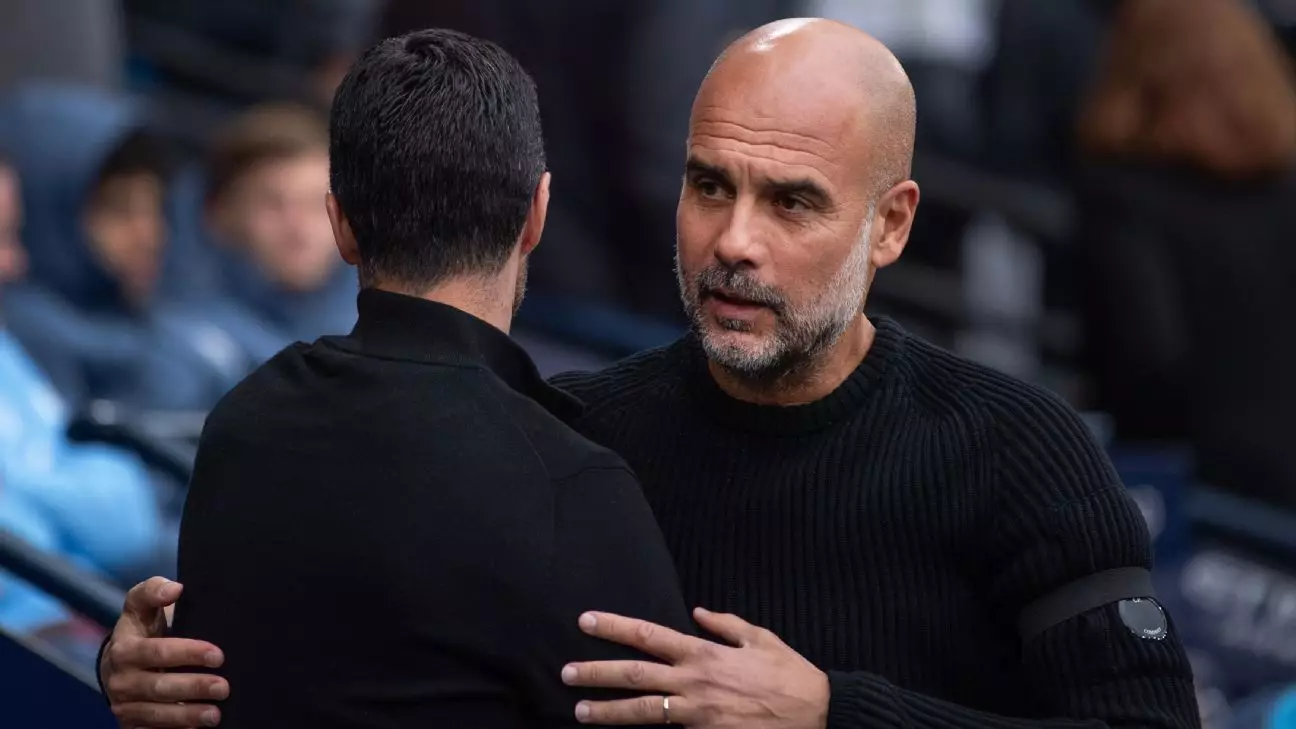In the world of football, rivalries often serve as a backdrop for intense drama both on and off the pitch. Recently, a conflict between Pep Guardiola, the decorated manager of Manchester City, and Mikel Arteta, the strategist at Arsenal, has brought this notion of sporting rivalry into sharp focus. Amid rising tensions following a recent contentious match between their teams, Arteta implied that he possesses comprehensive knowledge about Manchester City’s inner workings—a claim that sparked a pointed response from Guardiola. This back-and-forth underscores not just a clash of tactics, but a deeper commentary on ethics, rivalry, and the responsibilities of those within the beautiful game.
During a press conference, Arteta made a statement that prompted a wave of curiosity and critique. He referenced his four-year tenure as an assistant under Guardiola, suggesting he is privy to crucial information regarding Manchester City’s approach to the game. The phrasing of his comments carried an air of mystery, hinting at potential inside knowledge about tactical subtleties or even ethical dilemmas. While Arteta’s intentions might have been to underscore Arsenal’s competitive spirit, his choice of words seemed to raise eyebrows and invite skepticism about the integrity of both teams. Guardiola, known for his meticulous attention to detail, seized on this ambiguity to challenge Arteta to clarify his assertions.
When confronted with Arteta’s remarks, Guardiola responded with characteristic candor, demanding that his counterpart provide specifics to back up his claims. Guardiola’s retort reflected not only defensiveness but also an opportunity for dialogue about transparency and clarity within professional football. He highlighted the fine line between competitive banter and accusations that could incite further controversy, especially considering the contentious backdrop of the ongoing Premier League rivalry, exacerbated by recent investigations into Manchester City’s financial practices. Guardiola’s demand for clarity serves as a reminder that in a sport defined by emotions, offenders should be held accountable for their words.
Rivalry Beyond the Pitch
The relationship between Arsenal and Manchester City has evolved, becoming increasingly fraught with animosity as both clubs vie for supremacy in the Premier League. The intensity of recent encounters has led both managers to navigate the delicate balance between professional rivalry and personal respect. Despite the emotional upheavals on the field—illustrated dramatically when City’s Erling Haaland appeared to provoke Arsenal’s Gabriel—Arteta maintains that this rivalry should not impede the cordial dynamics formed during their time together at City. This ongoing narrative reveals the complexities of dual allegiances present in professional sports.
Guardiola’s willingness to acknowledge the emotional volatility inherent in high-stakes matches draws attention to the nature of competition in football. His statement about engaging in “war” on the pitch illustrates how competitive instincts can intensify when high stakes are involved. Both managers seem to recognize that while rivalries can intensify personal relationships, the essence of football lies in the unpredictability of emotions that surge within the heat of competition.
The dialogue between Guardiola and Arteta serves as a microcosm of the tensions permeating contemporary football, where tactics, camaraderie, and ethical considerations collide. In an environment charged with passion and rivalry, clarity becomes paramount, reminding all involved that their words—and actions—carry weight beyond the immediate context of a match.

